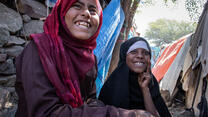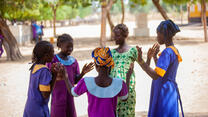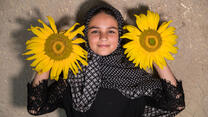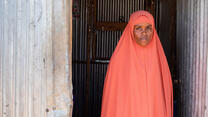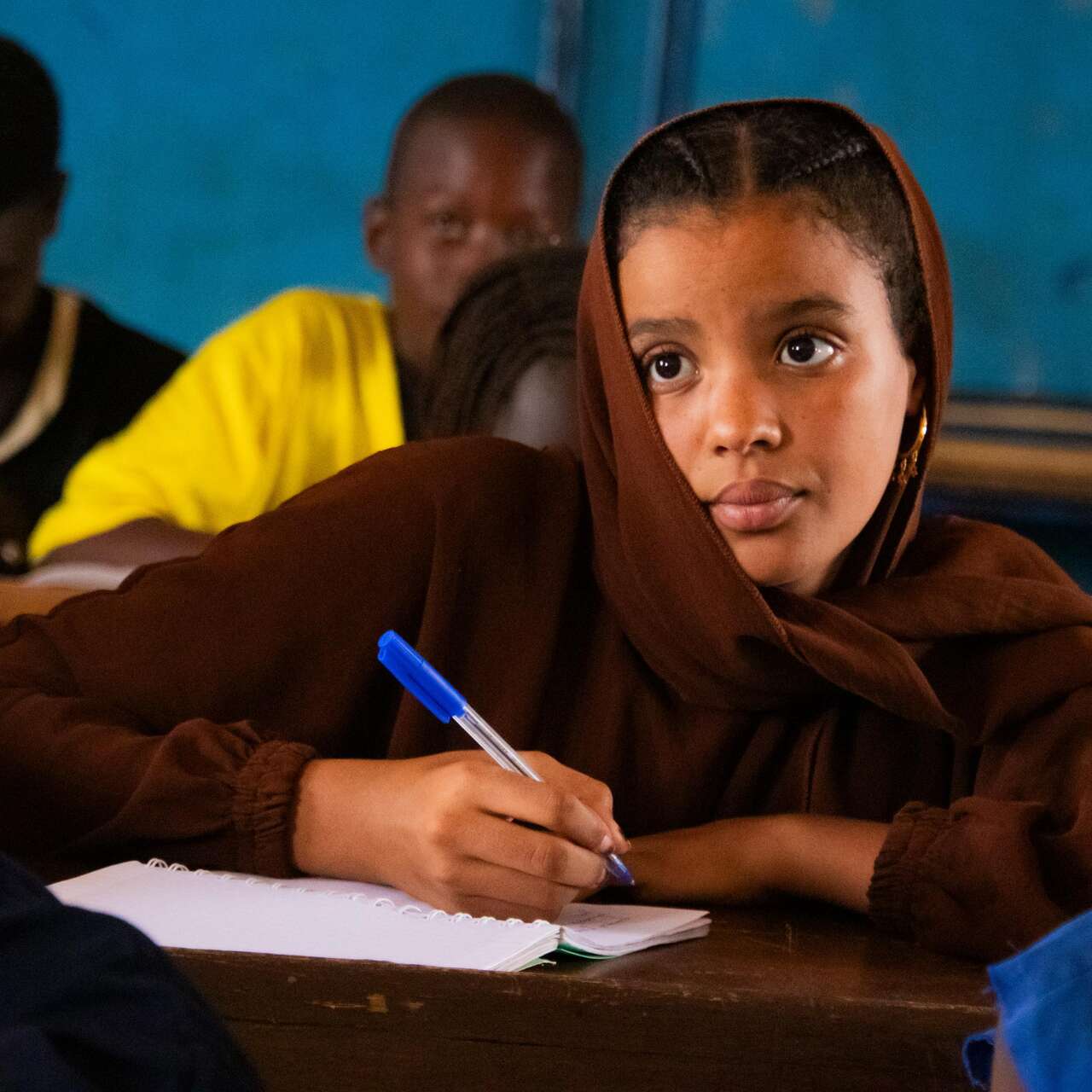
Both security and economic crises worsen humanitarian conditions in Mali, which is home to over 318,000 refugees from Niger, Mauritania and Burkina Faso. The IRC partners with the EU to provide emergency education and child protection services to countless displaced children in the Gao region.
Millions suffer in silence amid the forgotten crises in central Sahel, with over 7 million people in Mali alone affected by extensive conflict, instability and insecurity in the country. As hostilities with nonstate armed groups rise, Malians are quickly losing access to critical public services. Humanitarian workers perform tirelessly to address the vital healthcare needs of the 3.7 million people without access to health facilities. And now the education system is also a victim of the crisis: 1,984 schools have been closed, leaving over 595,000 children out of school. With funding from the European Union (EU), the International Rescue Committee (IRC) collaborates with Azhar Mali to carry out a program to support access to quality education for the displaced children facing insecurity.
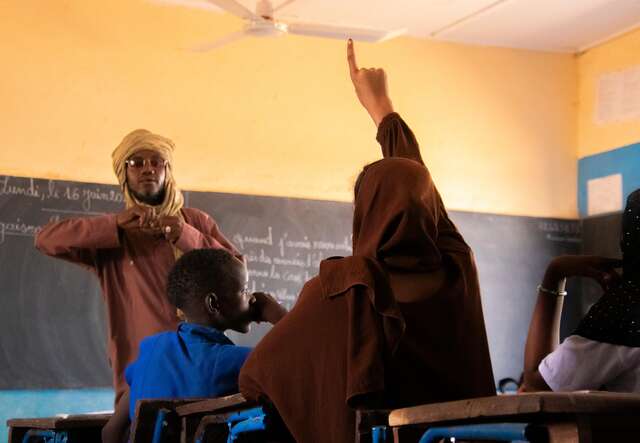
Girls are particularly at risk of confronting discrimination and inequality but, in spite of the odds against her, 15-year-old Samah is determined to make her dream of getting her baccalaureate and studying about her and her family's rights a reality. Like many refugees, she has a story to tell: along with her family, she was forced to flee her home in Burkina Faso when armed men came to her neighbourhood and threatened everyone into leaving. “The schools were closed, the teachers had fled,” she explains, “We lived in fear.” It was hard for her to leave the place she grew up, but together with her siblings, cousins, and grandmother, she came to live in safety with her uncle, Mohamed, in Gao, Mali. And now, through the EU-funded IRC’s program, she is finally able to resume her education.
“The future is built at school. School helps you realise your dreams.” — Samah
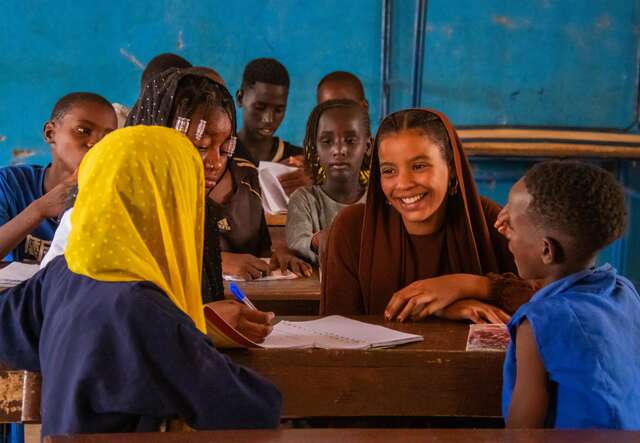
Now that she can go to school without being afraid, Samah wakes up every day at 4 am with renewed ambition for her future. She begins by making tea for her grandmother, breakfast for her sisters, and then gets ready for school. After school, she returns home to have lunch, chat with her grandmother, and revise her lessons, then she goes straight back to school in the afternoon. She loves to be challenged so she can do better: “I really like grammar, even if it's difficult. I like it when I find the answers." She recounts a day when she was the only one in class who could answer a difficult question, and her teacher was so impressed that she was given a chalk stick as a reward. She felt very encouraged and always keeps it with her as a reminder of what she can achieve. “I'm having fun at school, and that gives me hope that I can make my parents proud of me.”
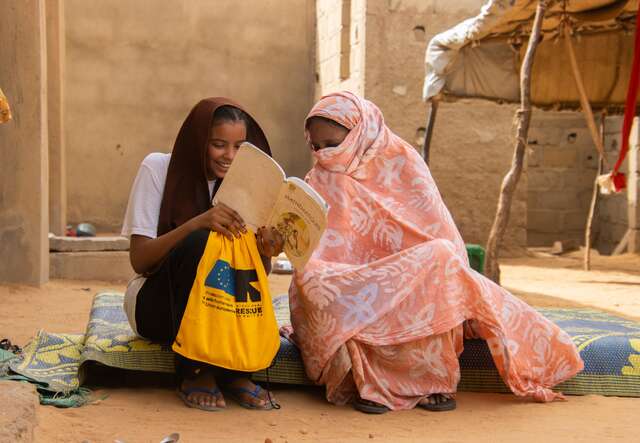
At home, her grandmother and uncle have created an uplifting environment. They support her goals, encourage her curiosity for learning, and tell her stories about her childhood, their village in Burkina Faso, and their family traditions. Today, she knows exactly what she is working toward: “My goals are clear: I want to move up a grade, pass my exams, go to high school, get my baccalaureate. School helps me get closer to my dream. I'm learning to read, write and understand my rights.”
“We take in all the children, and the support of our partners is a huge help.” – Souleymane, Samah's professor
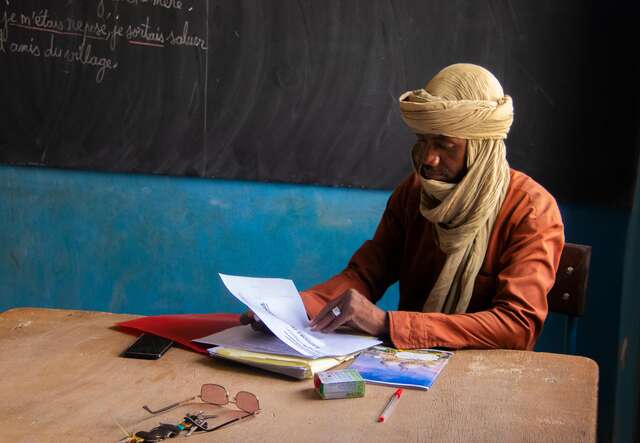
Her professor, Souleymane, was running a school in Gao that faced many challenges. The large influx of displaced children could not be accommodated in the classrooms, and the shortage of teachers and lack of resources made his job more difficult. But with the creation of a learning centre, refurbishment of classrooms and provision of training to teachers funded by the EU, the school is in better condition. Aided by his improved teaching techniques, Souleymane has regained hope in his ability to provide the best education to his pupils: “The project has changed my life. I'm still working with the technical and financial partners. They give me regular support.”
He observed increased motivation in his students after they received school supply kits, which included pens, bags, notebooks, and more. Attendance has become more regular, and class participation is more enthusiastic. Even the children whose parents previously refused to send them to school are now attending. “In a well-equipped classroom, with motivated teachers, learning becomes more fluid,” Souleymane explains. He was particularly inspired by Samah’s progress. While before she was shy and wouldn’t participate much in class discussions, today she can express herself effortlessly in both French and the local language. He has been essential in building Samah’s aspirations, as she tells us: “The teacher encourages me a lot. He tells me I'm serious and brave.”
“If I had the power, all girls who are old enough to go to school would go.” – Mohamed, Samah's uncle
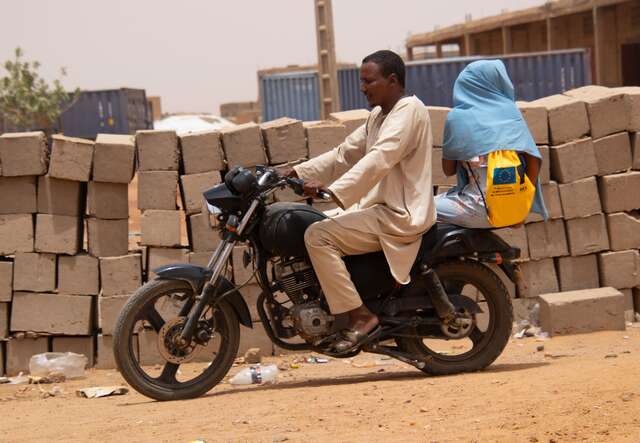
Her uncle Mohamed was also forced to flee his home in Burkina Faso after his livestock were stolen and the general air of violence left him in immediate danger. He lived in a simple house and ran a small business, but now he no longer works: “You could say we're surviving. Before, we worked; we didn't lack anything. Now it's totally different.” He learned about the education project through an awareness-raising team and was delighted that his nieces and nephews could return to school. He is a loud advocate for equal opportunity education for girls and sees the importance of changing his community’s traditional view against it. “I've realised that succeeding as a woman is very different from succeeding as a man. I regret that there are no educated women in our community. To change that, we need to get all the girls into school.”
Nothing is more important to him than making sure the children in his family get an education. His daily routine centres around dropping them off and picking them up from school. “You can see the change in Samah,” he says, explaining how her mood has significantly improved since she began focusing on her studies. “I really hope she fulfils her dream. And that can only happen through school.” Many displaced children are still at risk of being recruited by armed forces as political instability terrorises the region. He wishes to deliver one message to those who can help: “I call on all national and international organisations to come to the aid of refugees and internally displaced people. We need help to integrate.”
A Call for Continued Support
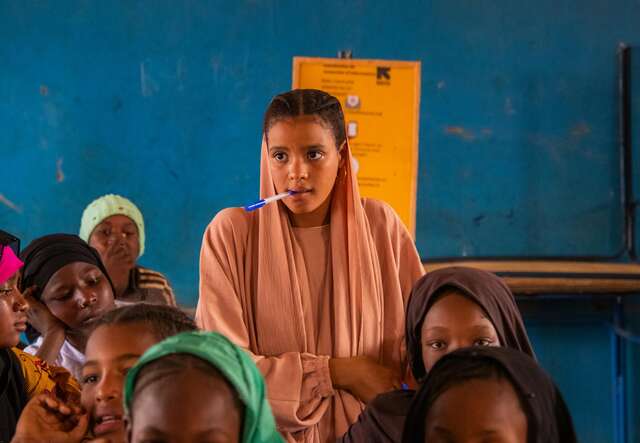
The International Rescue Committee remains committed to providing essential aid and protection services to those most affected by complex humanitarian crises. Our program advocates for a dual approach to education and child protection for displaced children. Our aim is to strengthen systems in place and promote healthier learning environments where boys and girls can receive necessary resources, as well as the psychosocial support needed for them to not just survive, but also thrive. Our reach and impact on lives like Samah’s is only possible due to the continued support of partners like the European Union (EU) through the Humanitarian Aid department of the European Commission (ECHO). Now more than ever, as humanitarian demands rise steeply, refugee families require the support of international actors to receive critical aid and investment in their futures.
The International Rescue Committee partners with the European Union to provide life-saving support to people caught in conflict and disasters around the world. Our work funded by the EU enables people to survive, recover and rebuild their lives.

